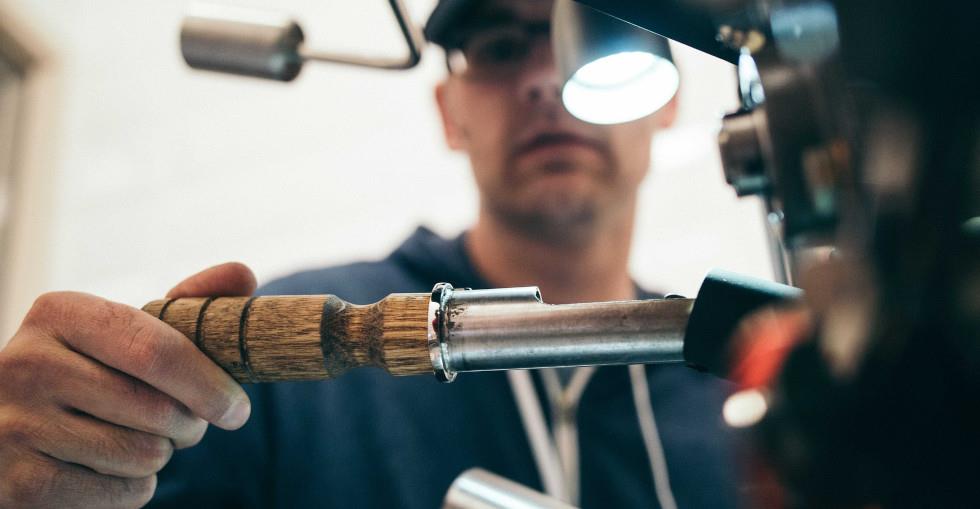Kickstarting your plumbing business
Running and growing a plumbing business can be a profitable and fulfilling pursuit, but it does require knowledge of specific elements, processes and of course, the industry.
You’ll certainly need to acquire some hands-on experience in the area you’re considering. Most household plumbers should get an NVQ level 2 qualification, which is similar to an A level.
Many people go on to take the level 3 tests too. Plumbers often get NVQ training on the job, beginning with easy duties while attending college in the evenings or on a day release programme.
Find your niche
You will not be the only plumber offering a service in your neighbourhood. So differentiating oneself from other plumbers is vital. To run a profitable plumbing firm, you must first understand your target clientele. Individuals or organisations that may require a plumber include:
- Landlords
- Realtors or individuals who specialise in the sale of property.
- Businesses such as restaurants and manufacturing
- Hospitals
- Managers of buildings and grounds
- Electricians, roofers, and builders are examples of contractors.
Study your industry
In 2020-21, central heating installation, maintenance, and repairing is expected to account for 45.2 percent of industry income, with general plumbing services accounting for 24.5 per cent. Analysing these statistics will highlight which areas might become more lucrative, and which areas may be susceptible to recessions or other negative external impacts.
Building solid connections is essential when running a successful plumbing business. For example, collaborating with reputable contractors can result in high-quality plumbing leads and referrals.
Some industry examples to analyse can include Atlantic Plumbing and Heating Company, which was founded in 1999.
It grew into a significant service firm in southwest London. This firm’s services have evolved to encompass electrical, roofing, tiling, bathrooms, wet rooms, kitchens, as well as painting and decorating.
MS Heating and Plumbing is one of Birmingham’s most reputable and highly regarded plumbing firms. For over 11 years, they have provided unmatched plumbing services. Superior plumbing services and craftsmanship have made them a household name. They have done projects ranging from high-end to low-budget installations, all of which received favourable responses.
Interesting points about the UK plumbing industry
- Plumbers in London make the highest hourly wage, compared to other parts of the UK
- There are approximately 130,000 registered heating engineers
- Over the past five years, the Plumbing, Heating and Air Conditioning industry increased faster than the overall economy.
What equipment will you need?
Tools. Tools. Tools. Unless you already possess your own equipment, the initial purchase of tools for a plumbing business will be the most expensive part of the process. Some basic plumbing equipment include a plumber's wrench, pliers, and a saw, however specialised instruments like a waterfall pump, plumbing snake and plungers may be required.
While the administrative expenditures of starting a company are quite minimal, you will almost certainly need to invest in wheels if you do not already have them.
Plumbers often need a van or truck large enough to transport all of their equipment and supplies. It’s a mobile company, and you want to be prepared with everything you need as you move to and from your clients’ locations.
Equipment costs will also vary considerably based on your demands and preferences. This is often not ideal for minimising expenses, since low-quality instruments are unreliable and degrade considerably more quickly than higher-quality equivalents.
Furthermore, when running your business, you'll need to acquire accounting software to manage payroll, invoicing, and taxes, as well as marketing materials.
Licenses and insurance considerations
A licence isn’t required to operate as a general plumber in the UK, but you should be familiar with the country’s water rules and construction codes. Be aware that being on the Gas Safe Register is a legal necessity when working with gas equipment. In the past, this was often referred to as “CORGI registered.”
If you want to operate with any gas appliances, you must be licensed with Gas Safe. Will you be repairing solid-fuel or oil-burning appliances? If that’s so, HETAS and OFTEC certification are strongly encouraged. Certain jobs, such as installing unvented hot water systems, need further certification.
Visit HMRC’s webpage to apply as a sole trader, limited company, or partnership, depending on the form of your firm and the kind of business you have.
Creating a limited business will also require you to register with Companies House, which may impact the sort of plumbers’ insurance you seek. You can opt to join some organisations such as CIPHE (Chartered Institute of Plumbing and Heating Engineering) and CHAS (Construction Health and Safety Scheme).
Promoting your business
Stamping your company’s emblem and visual identity on your vehicle might help you stand out from the crowd in your neighbourhood.
Branded company cars and newspaper ads are effective techniques for boosting local exposure, especially for plumbing firms that only operate locally. Wearing your logo and name on your uniform can help you be recognised by the general public and prospective customers in your area.
Organising a joint seminar is another marketing opportunity. To keep your audience engaged and interested, you might want to create various tutorials concerned with DIY plumbing approaches and minor hacks. These would be published to your social media accounts (something every business should have), including GoogleMyBusiness and a YouTube channel.
Financing your business
Plumbers are often self-employed, so they can benefit from SBA loans because they are guaranteed by the government.
In addition to operating capital, SBA loans may be utilised to fund equipment purchases. In general, lenders consider plumbers to be a rather safe lending potential, therefore unsecured business loans are a suitable alternative.
Leasing tools and equipment might be another option to your working capital and equipment finance problems. Additionally, borrowing from an investment group is a potential alternative. This may be the greatest choice for plumbing companies looking to raise funds by selling a share of their business.
Recruitment considerations
According to a recent poll, plumbers were the most in-demand profession in 2020. Historically, large plumbing firms recruit skilled tradesmen and women from Eastern Europe, but this is likely to be impacted by restrictions posed by Brexit.
This means more opportunities for British tradesmen and women, who might see an increase in salaries due to demand. As an employer, you’ll need to keep this in mind if you want to grow your team.
To attract candidates, you might ensure that payments would be handled online or by an administrator. Many plumbers would want this since customers don't always pay on time. You might also add financial aid for training or mentoring programmes that expose personnel to new plumbing areas, as many individuals want to develop their skills.
Deciding to exit your plumbing business
All good things come to an end, and you may decide to cash out on your profitable plumbing company by selling it privately. Make sure your exit strategy details the timeline you’d want to get the deal done in, and who is the best fit for your company.
Preparing someone that works for you to take over the business is a strategic option, as they’ll know the ebb and flow of your company. However, plumbing businesses for sale are in demand, so you are likely to find a buyer that fits your criteria.
Remember that the value of your business is a significant factor that the buyer will consider. When valuing your business, consider areas or elements that might increase its value and transferability, like ‘green alternatives’, unique software, or a loyal customer base.
When prospective buyers do due diligence on your firm, they will expect the data you offer to be a fair and accurate picture of its current status and performance, so make sure you approach your valuation pragmatically.

